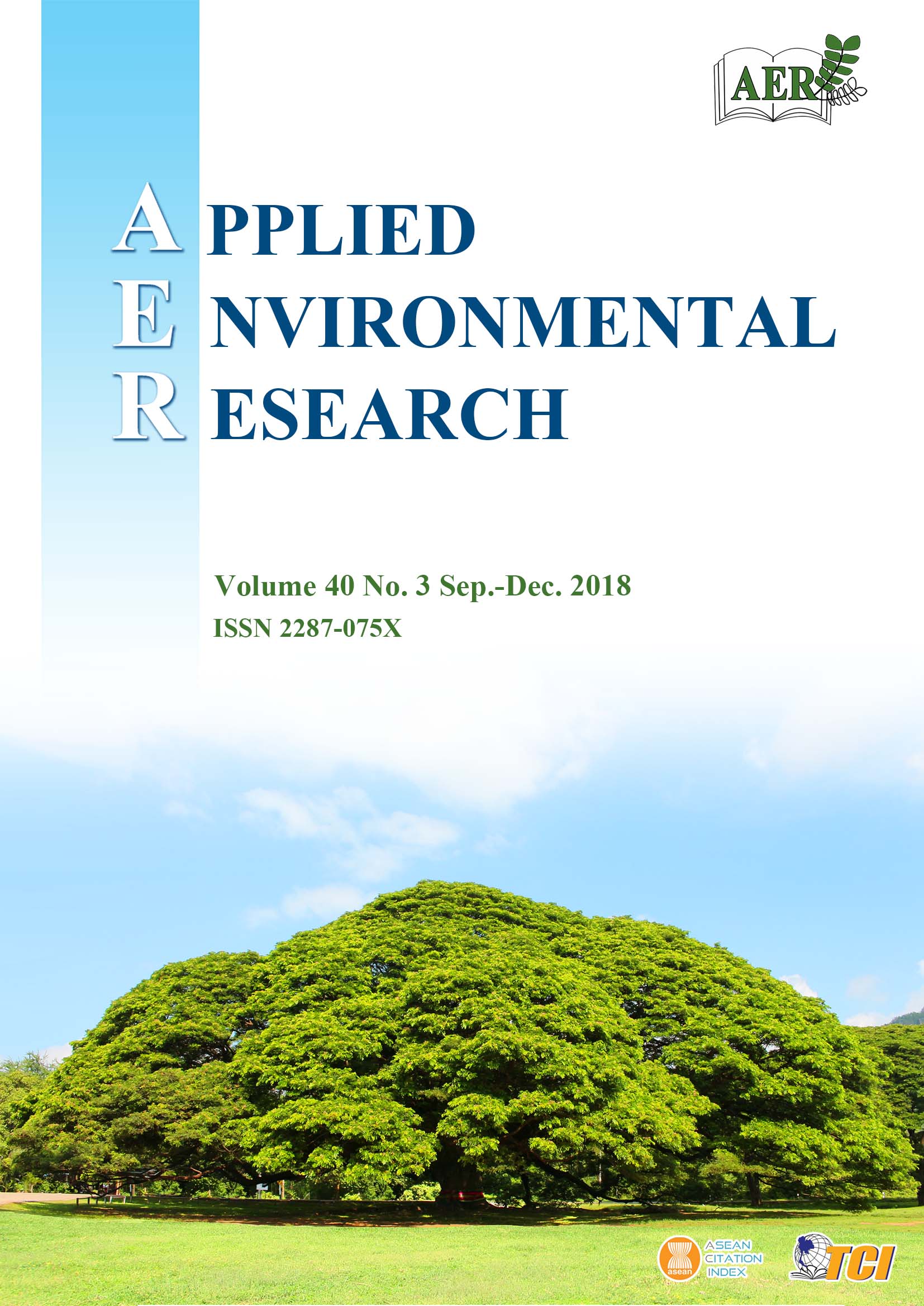Stakeholder Involvement in Developing Environmental Indicators for the Lam Nam Yang Part 1 Watershed in the Northeastern Thailand
Main Article Content
Abstract
Stakeholder involvement is recognized as critical to successful long-term watershed management. Approaches to developing sustainable watershed management plans are based upon selection and weighting of a set of relevant indicators on which the watershed’s sustainability and health can be measured. This study aimed to identify key environmental issues affecting the Lam Nam Yang Part 1 watershed in Thailand, and to work with stakeholders to develop a set of environmental indicators to support sustainable watershed management. The study used a community survey and key informant interviews to obtain stakeholder inputs into the process. Applying the Driver-Pressure-State-Impact-Response (DPSIR) framework, key environmental issues were identified and used to frame environmental indicators for the Lam Nam Yang Part 1 watershed. Key environmental issues identified included drought and water shortage, forest area depletion, biodiversity decline, and soil deterioration. A total of 101 candidate indicators were identified for monitoring the sustainability of the Lam Nam Yang Part 1 watershed, with 31 prioritized.
Article Details

This work is licensed under a Creative Commons Attribution-NonCommercial 4.0 International License.
Published articles are under the copyright of the Applied Environmental Research effective when the article is accepted for publication thus granting Applied Environmental Research all rights for the work so that both parties may be protected from the consequences of unauthorized use. Partially or totally publication of an article elsewhere is possible only after the consent from the editors.
